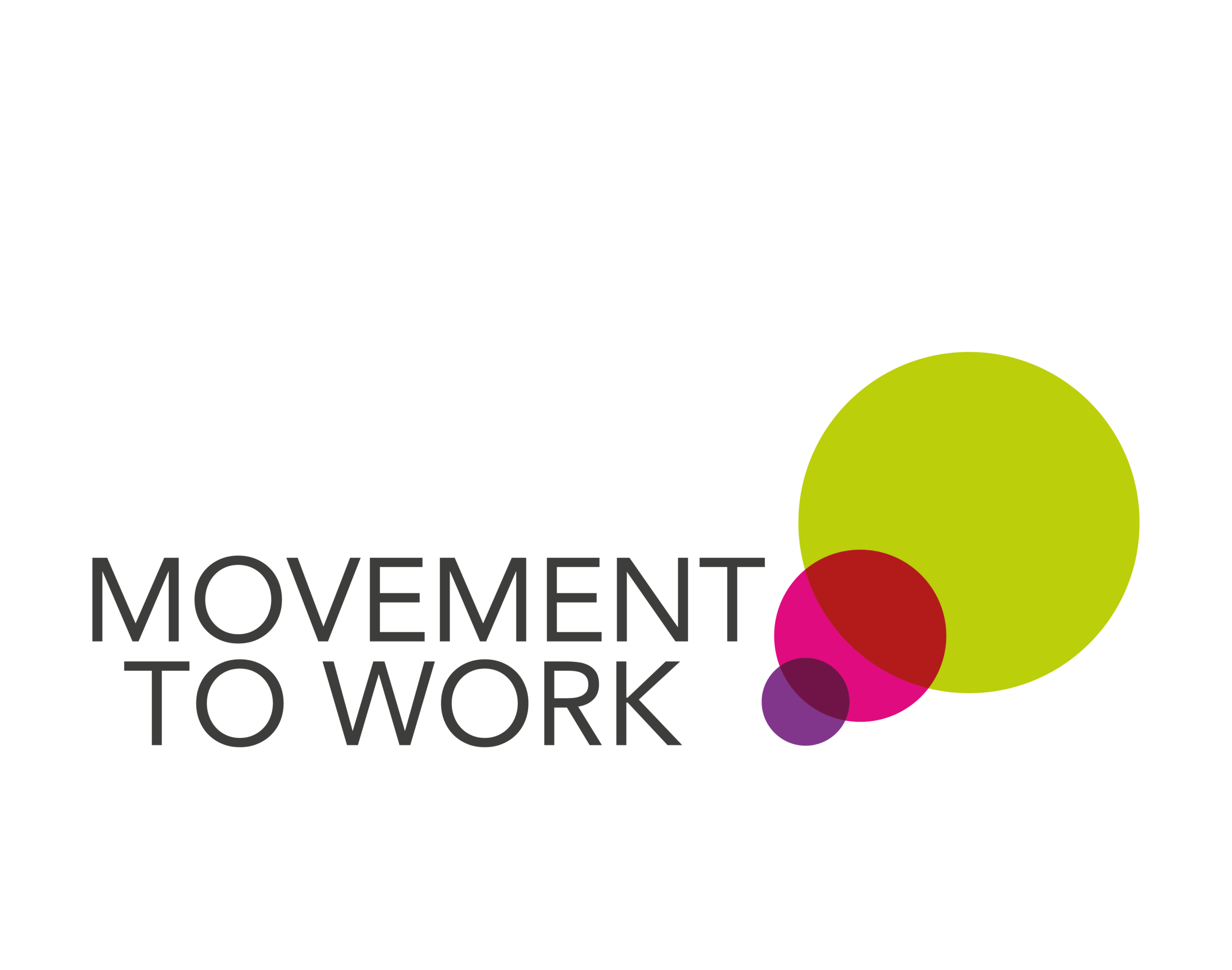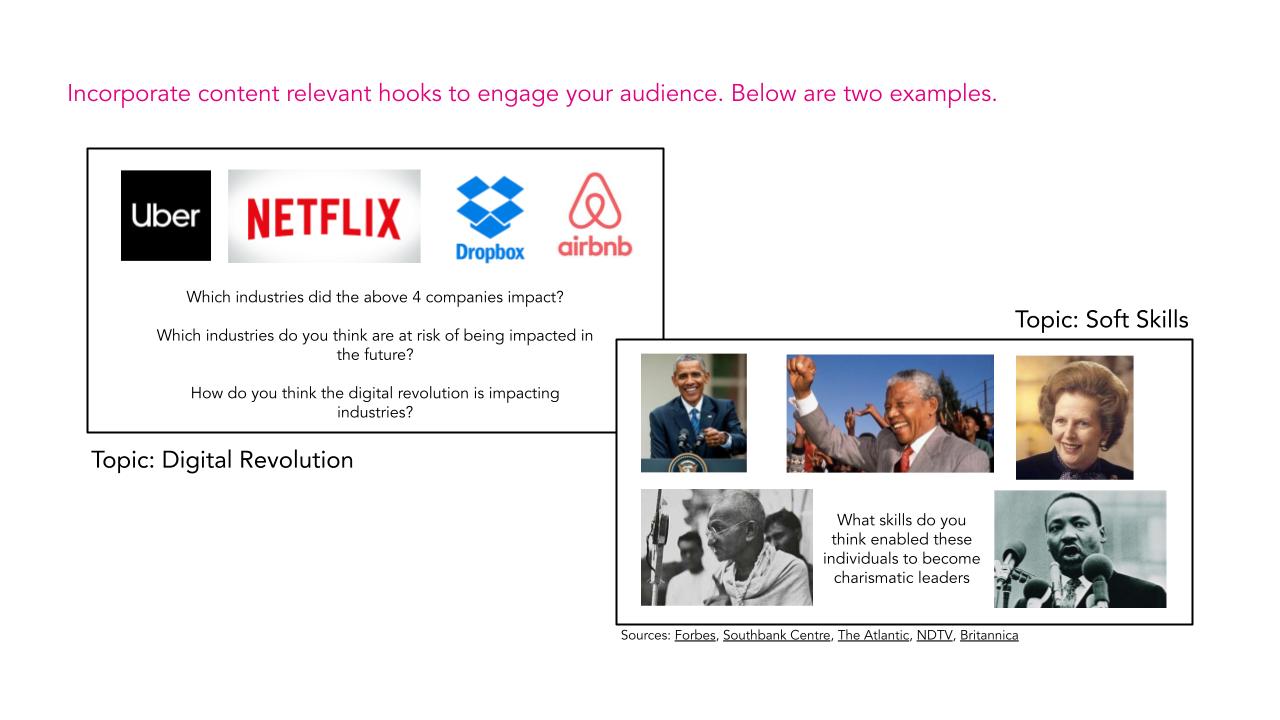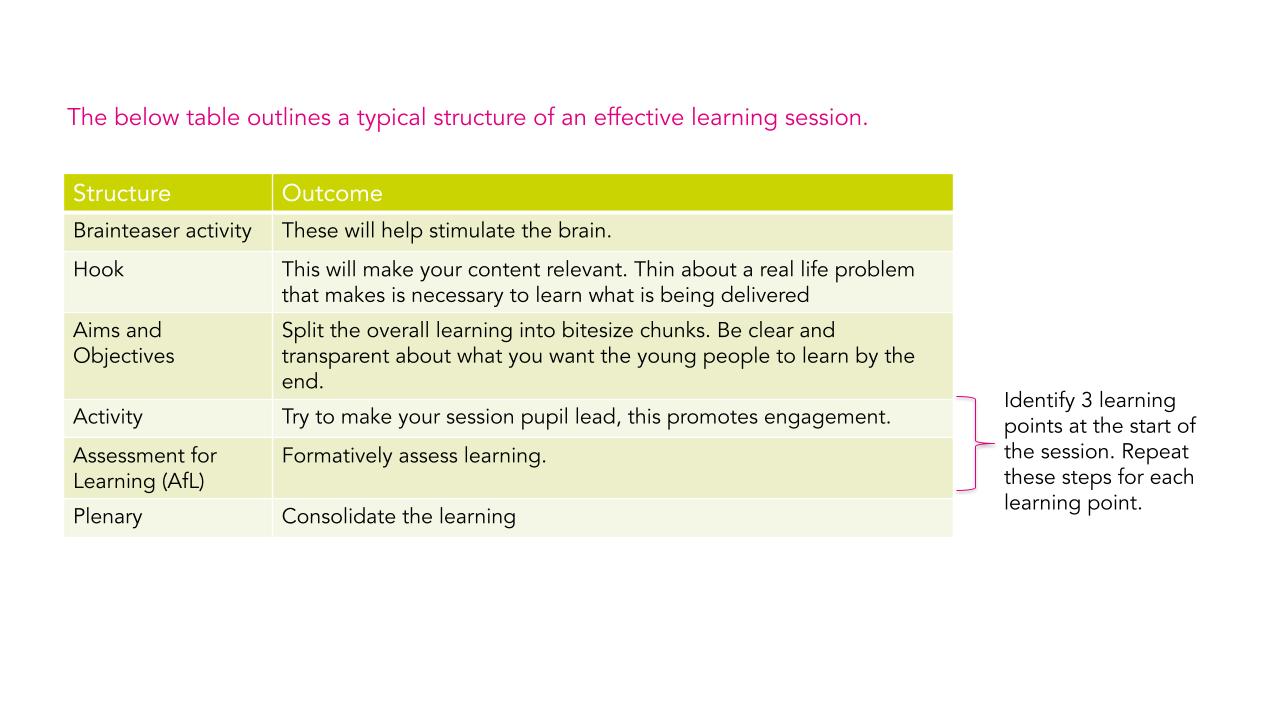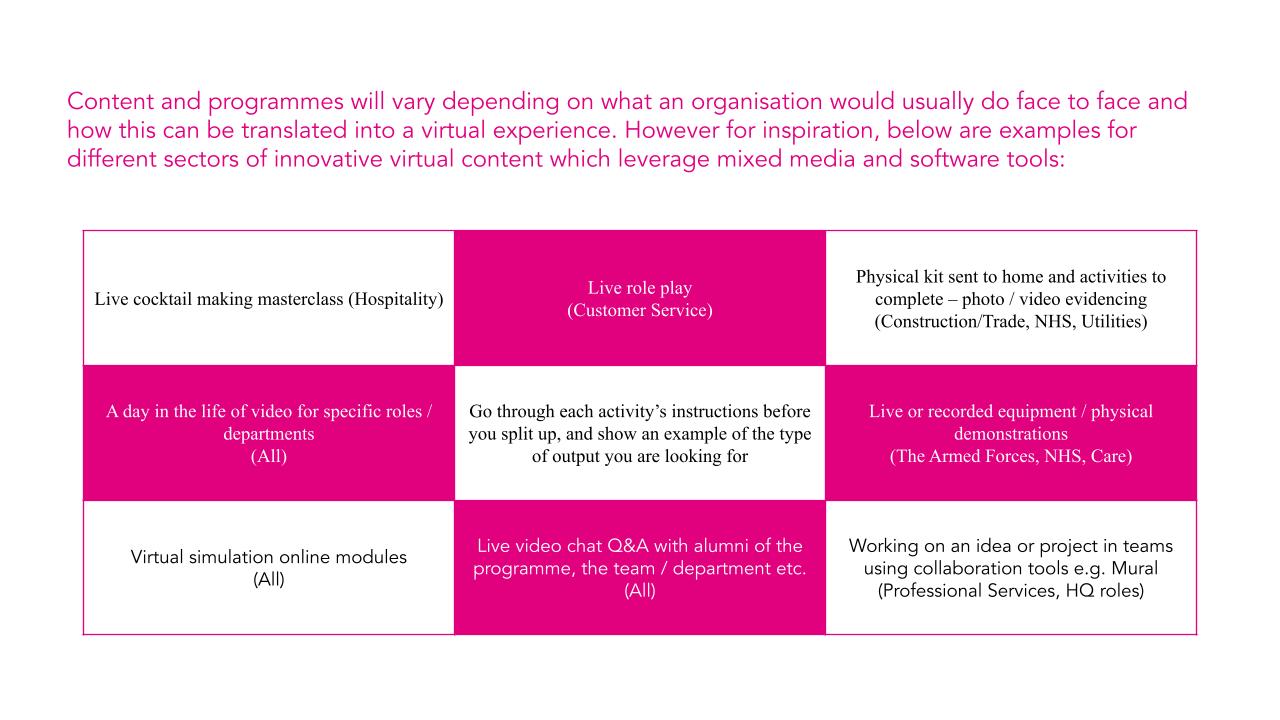Movement to Work Programmes
Employer Guidance
About this guidance
This employer guidance outlines a number of key elements you should consider when developing and maintaining your youth employability provision. We believe incorporating these elements will ensure that you get the most out of your involvement with Movement to Work and offer the best experiences possible to the young people on your programmes.
Let’s get into it
There are four* core routes to offering well-rounded work experience and youth employability provision within your organisation and these can be deployed in a variety of ways whether that’s virtually, in person or the perfect hybrid blend of both!
- A direct entry employability programme i.e. a learning and experience programme which results in new recruits to your organisation.
- A non-direct entry employability programme i.e. a learning and experience programme which equips young people with the skills and qualifications to work for a range of employers, not just your own.
- An apprenticeship
- A relevant Government supported work scheme
*Note: Government schemes can change and additional routes may become available.
Each of these models share commonality in their quality standards, bespoke curriculum, safeguarding and regulatory compliance. However, they differ in terms of time scale, delivery mode and methods of funding.
The following considerations are useful to address, as a team or organisation, before designing and launching your youth employability programme to make it a truly compelling and effective offer.
Movement to Work exists to help employers find ways to offer quality youth employability opportunities for those aged 16-30 facing barriers to work. Through this, we help to create sustainable, inclusive and diverse workplaces fit for the future. We do this by rallying businesses and making powerful partnerships across the training, charitable and government sectors, and inspiring leaders to help young people change their lives through positive encounters with work.
Since 2013, the Movement to Work community has helped to deliver over 165,000 work placements with some of the biggest employers in the U.K. helping us to drive social change including: Accenture, BAE Systems, Barclays, BT, Salesforce, Centrica, the Department for Work and Pensions, Diageo, HSBC, IBM, Marks and Spencer, Marriott International, NHS, Tesco, and Unilever amongst others.
We are a registered charity offering 100% no-cost support – all we ask in return is that you commit to join our mission and deliver high quality programmes for those that need it most.
It is important to establish what budget exists within your organisation to support your Movement to Work programme. The most common forms of organisational sponsorship sit within the categories of Human Resources (talent acquisition), Corporate Relations (social responsibility) or generic charitable donations. Organisational funding can often be “matched” by third sector partners to amplify your programme’s impact and often government funding can support in relation to some individual costs such as travel, interview attire and childcare.
Movement to Work activities might be deployed from existing internal resources, a new team or role may need to be created or an invitation to tender issued to work with an specialised delivery partner which is further reason to safeguard a specific project budget early in the process. Often Movement to Work programmes look to scale quite rapidly so it is worthwhile considering long term resourcing needs before the project commences e.g. who will be the dedicated point of contact for your programme now and in the future as demand increases?
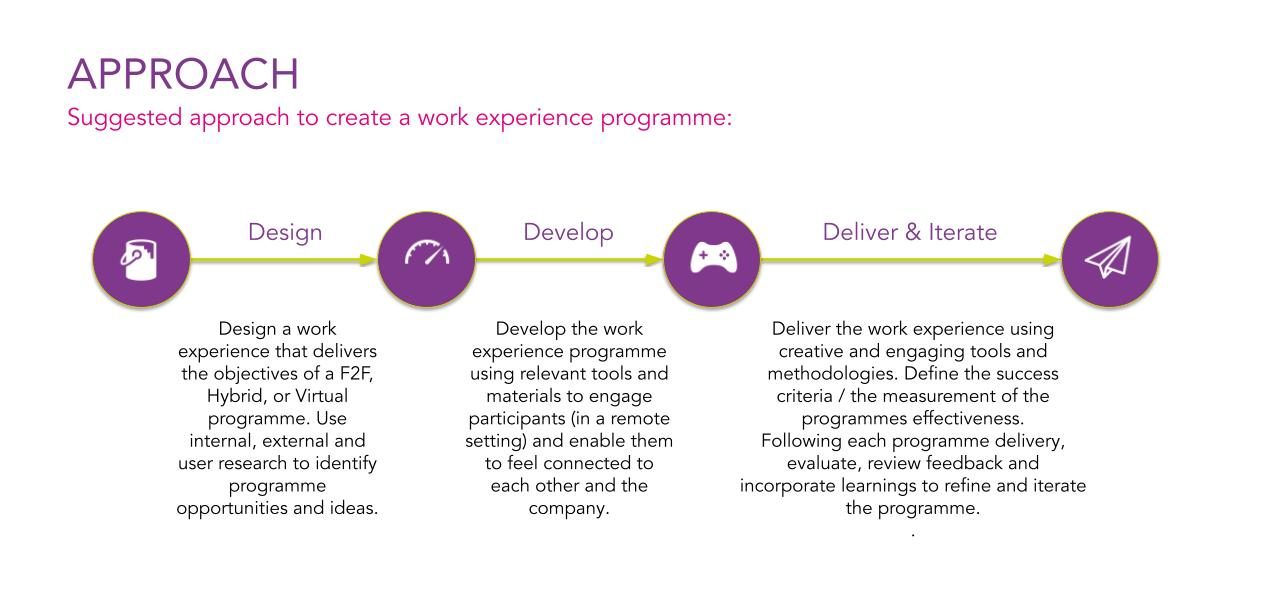
Data is often easiest captured when outlined from the very beginning, rather than gathered retrospectively. By thinking about what the key evaluation points are to your own organisation, prior to designing your Movement to Work programme, you are more likely to create a programme that is fit for purpose and serves the needs of your beneficiaries. There is no cost associated with joining Movement to Work but we do request members submit timely reports to showcase our collective impact.

Here at Movement to Work we can introduce you to several employers who have been in the early planning stages, or may now be increasing their pledge, and who can share their lessons learned with you as you form your work experience provision. It is worthwhile looking into what peers within your sector are currently doing, and what other successful programmes have offered in the past to gain full backing internally from inception.
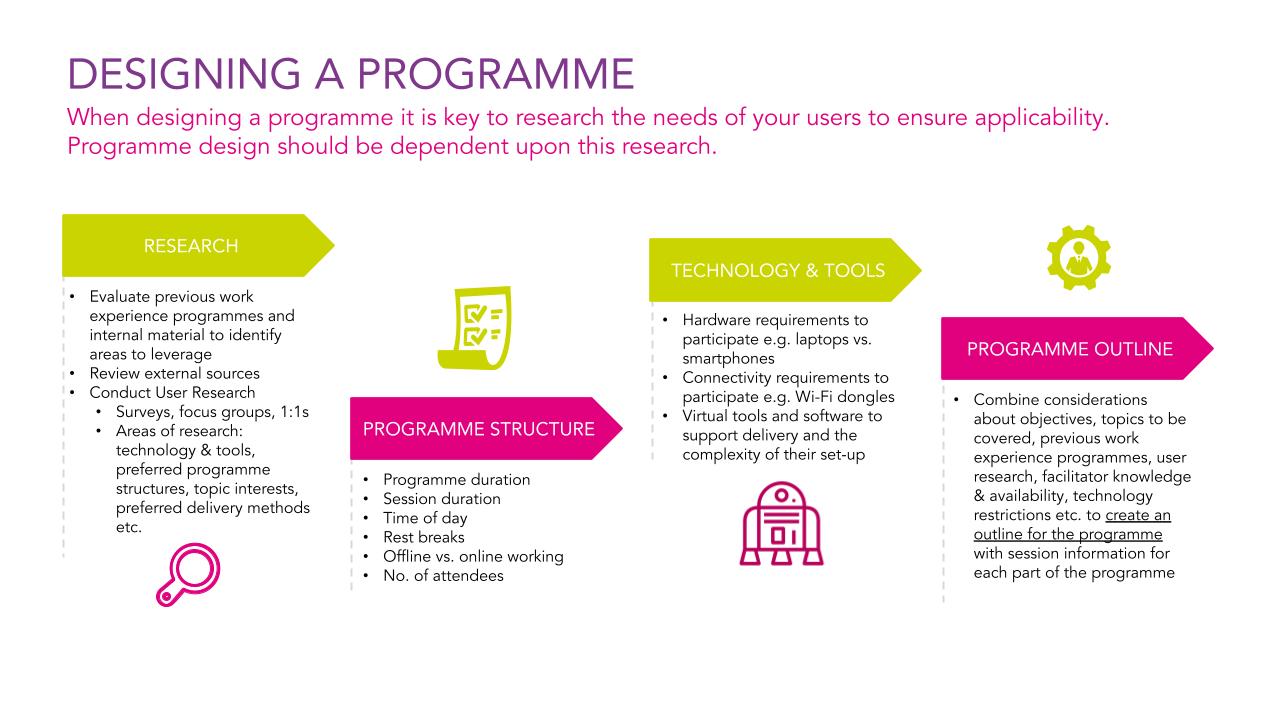
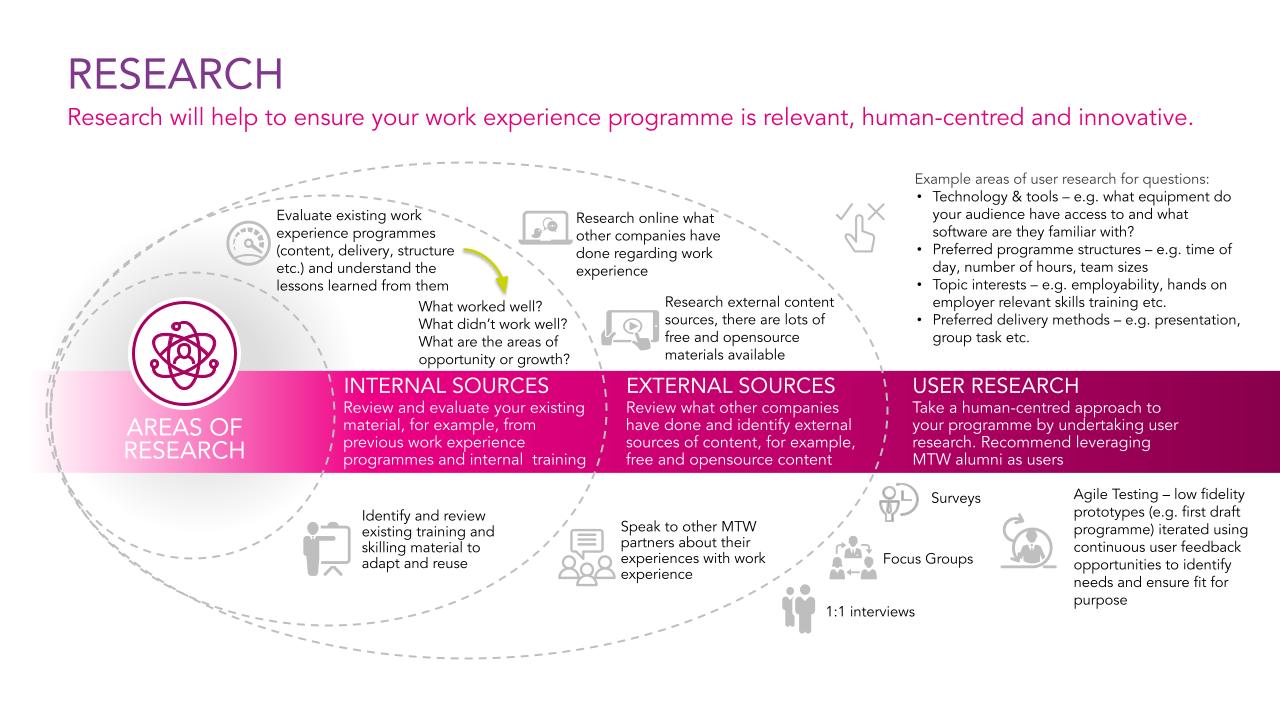
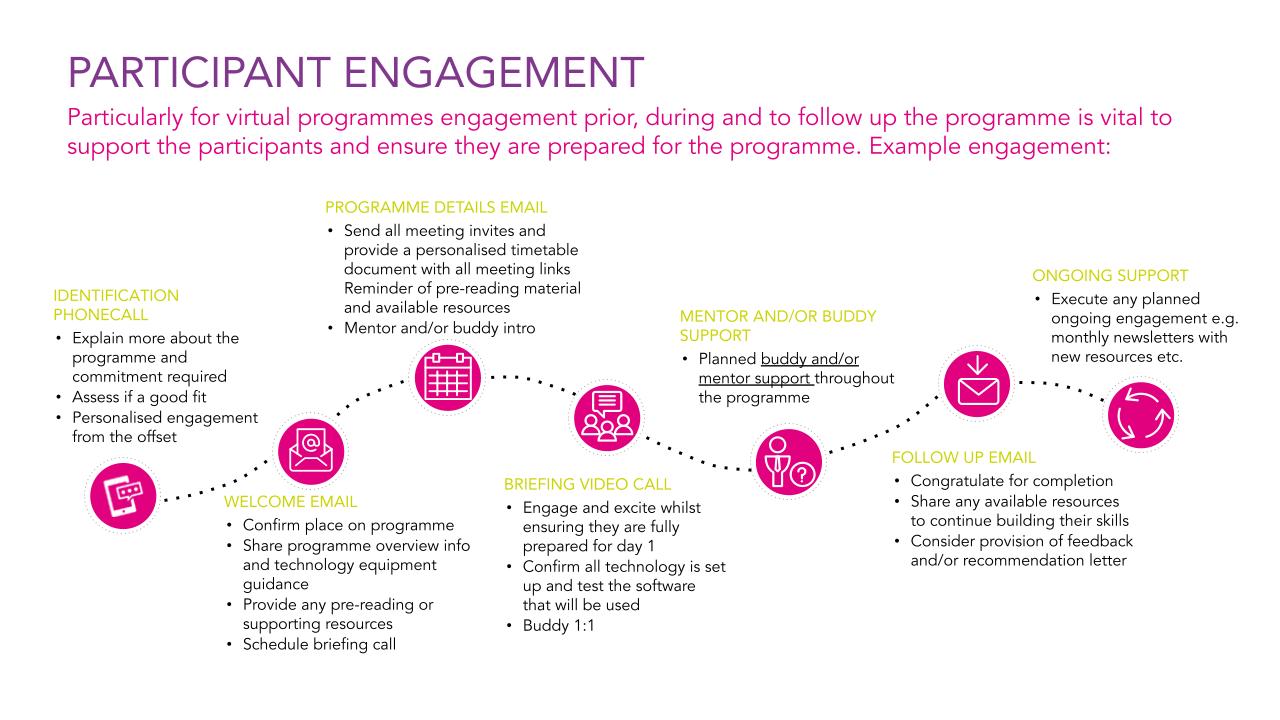
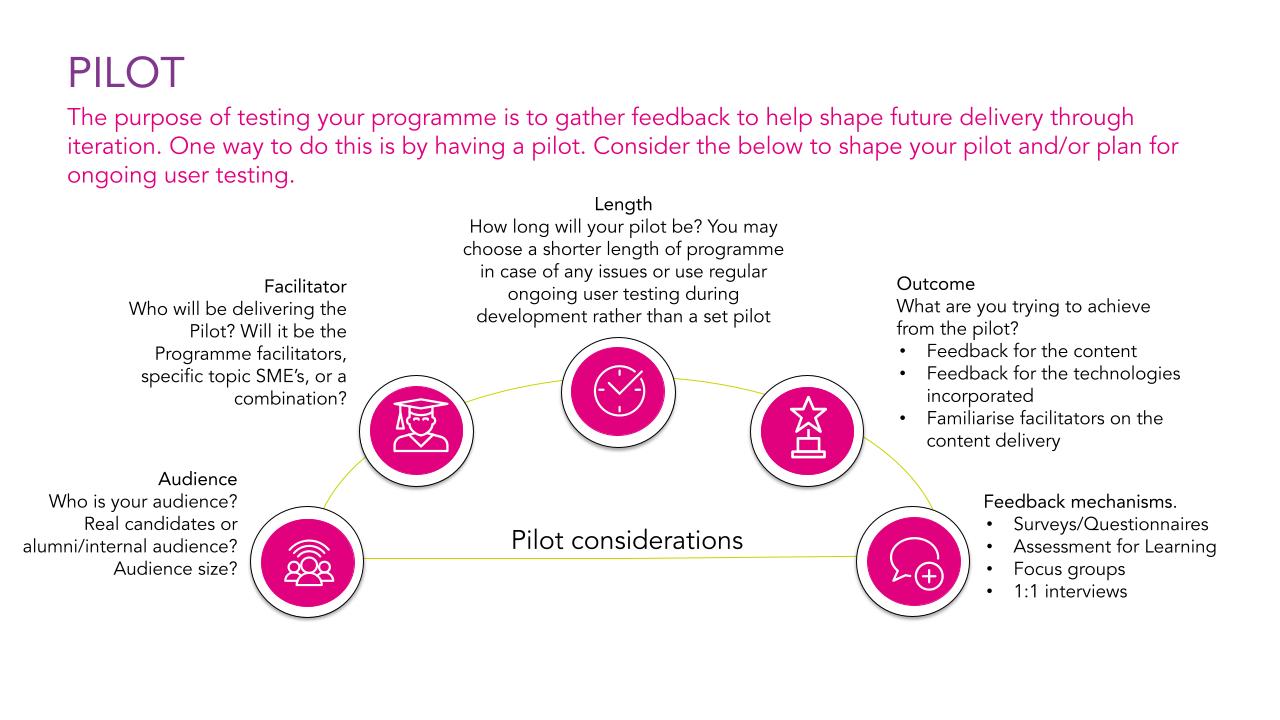
Employers should adhere to the following Movement to Work quality standards:
1. Young people receive appropriate training, whether provided by the employer or another specialist organisation, such as a youth charity or training provider.
2. Young people are supported in the workplace on a day-to-day basis, for example by a designated buddy or mentor.
3. Young people undertaking unpaid work experience are not used as a substitute for paid staff.
4. Placements will, wherever possible, be linked to jobs, including apprenticeships, in order to meet Movement to Work’s aspiration to collectively support 50% of the young people trained into employment, further study or training.
5. Young people are safe whilst on the placement – and where necessary, requisite safety clothing and equipment is provided.
6. Costs, which might present a barrier to young people on low incomes participating, are alleviated – e.g. provision of uniform or specialist clothing, or making necessary food and travel arrangements.
7. Where unpaid, placements are designed to allow young people to retain their Jobseeker’s allowance whilst taking part.
8. Programme data is captured and shared regularly with Movement to Work to allow accurate reporting.
Young people consistently tell us that writing and issuing CVs for any role remains a significant challenge to them in their job searching. We also hear employer members tell us they can easily have hundreds, sometimes thousands, of CVs to review per job role. For both parties this seems to be a troublesome, time-consuming and often unnecessary task. Movement to Work is a firm advocate for Behavioural Based Recruitment and finds that young people can often show themselves in a better light – drawing on their life experiences rather than work or educational experiences – to position themselves for a role within your organisation or place within your programme.
One way of being able to professionalise core and innate behavioural characteristics for young people is to have them undertake a Belbin Get Set assessment. Belbin Get Set is an adaptation of the long-standing Belbin assessment of roles to produce high-performance teams, but specifically altered for 14-30 year olds. The video below provides further information on how this can benefit your organisation and young talent within.
Watch here
It’s important to keep core learning modules to what are relevant, not simply all you could offer to an individual. This helps with participant engagement, relatability and reduces overwhelm. Often, core learning modules can be easily adapted from existing company materials or already sit with external delivery partners who could offer a pre-set or ‘white label’ curriculum for a cost.
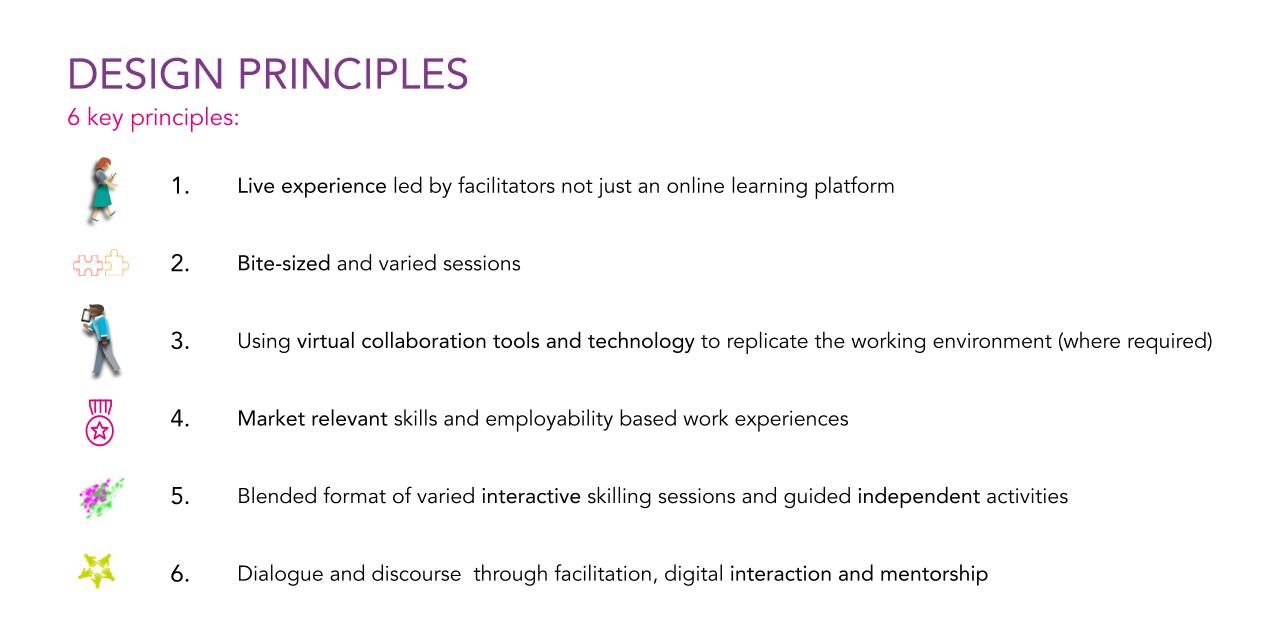
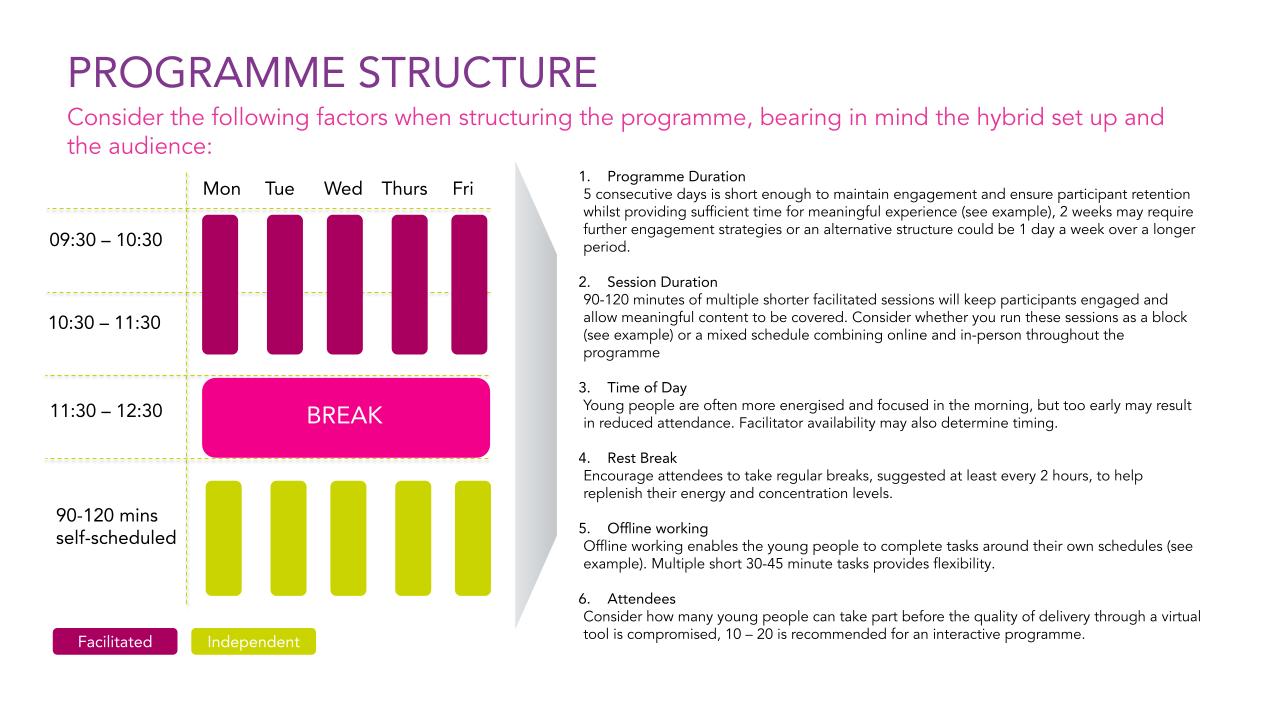
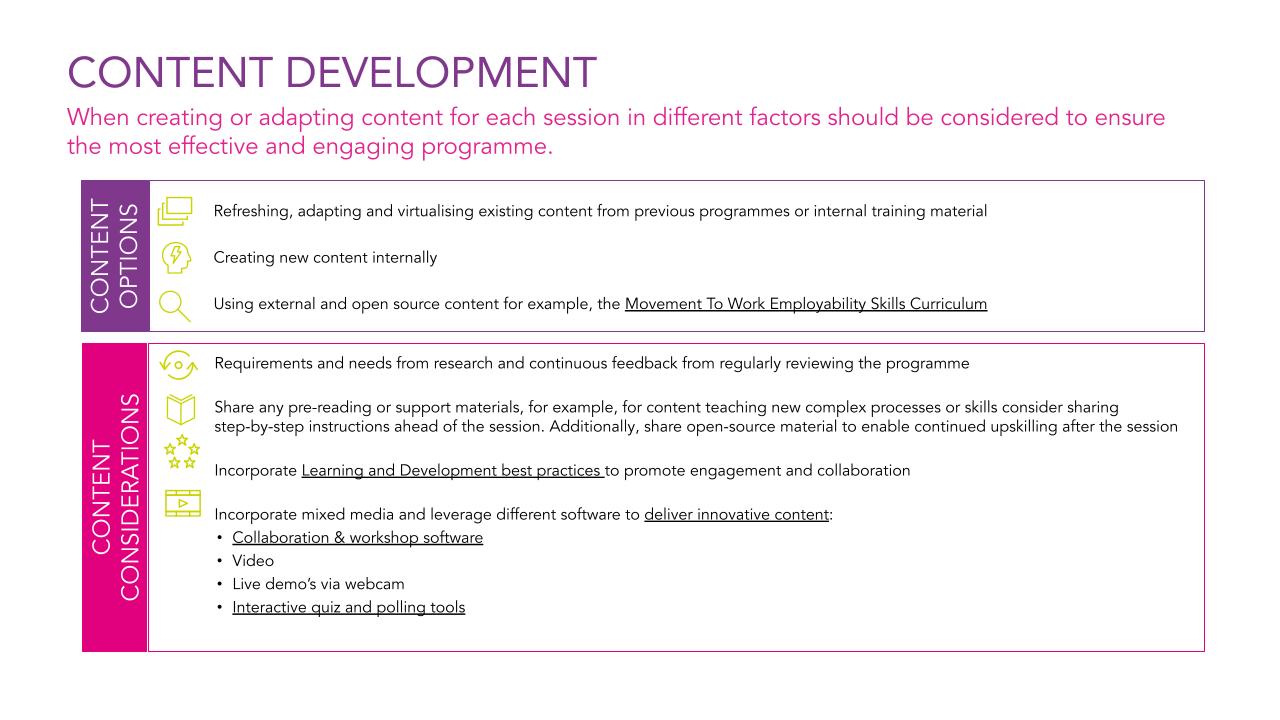 View the above links here.
View the above links here.
Increasingly, the importance of transferable soft skills and emotional intelligence is being recognised by employers and the absence of these attributes noted as contributing factors to longer term unemployment. It is therefore vitally important that youth employability programmes build in space and opportunity to learn, develop and practice these skills in a safe environment.
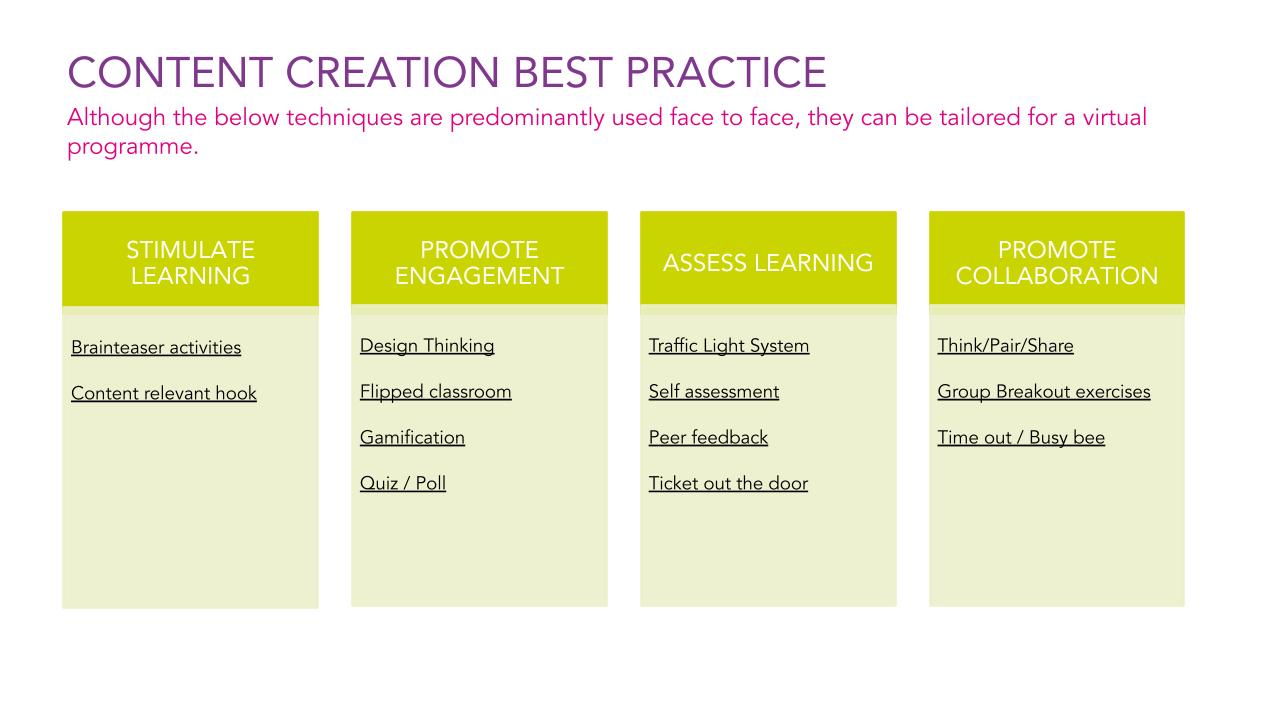
When considering where and how your organisation looks to attract young talent, a Movement to Work programme should be considered as a key mechanic in being able to do so. Movement to Work programmes can help you build a sustainable talent pipeline and many of our employer members use their Movement to Work programmes to not only strategically bolster their talent & recruitment initiatives, but their Corporate Responsibility/ESG agenda too, particularly in relation to their goals around social mobility and diversifying their workforce.
When looking to attract young people onto your Movement to Work programme, or your organisation in general, it can be useful to ask the following questions:
- Are there more creative marketing opportunities open to us beyond our website and traditional media outlets? Can we utilise social media channels more?
- Should we be advertising our provision in any other language beyond English?
- Should we be discounting all applicants who hold any form of criminal conviction?
- Do applicants really need a CV or previous experience for a direct entry role?
- Are we open to flexi working for our employees but not participants of our courses?
- How are we showing our support to candidates who aren’t successful in applying for our course(s) or who drop out during provision?
When reviewing your final offer, a practical way or ensuring you have held inclusive design principles throughout your planning process is to consult a tool such as Cards for Humanity. This ‘deals’ random cards which encourage you to think of individuals, with particular circumstances, applying for and undertaking your programme, or a role within your organisation. Have you catered for their needs?
Movement to Work encourages sensible safety and security parameters around programme recruitment but otherwise is a firm advocate for open and inclusive enrollment.
Here’s a brief word from just a few of our Movement to Work participants who were inclusively recruited and what it means to them.
It is more pertinent than ever to consider virtual and physical accessibility to our organisations and programmes like Movement to Work. Understanding, awareness and identification of neurodiversity is better established than ever before and technology can support us in easily developing a range of learning formats. Young champions we engage with across various projects, tell us communication, access to tech and planning in advance is key to undertaking any programme or role.
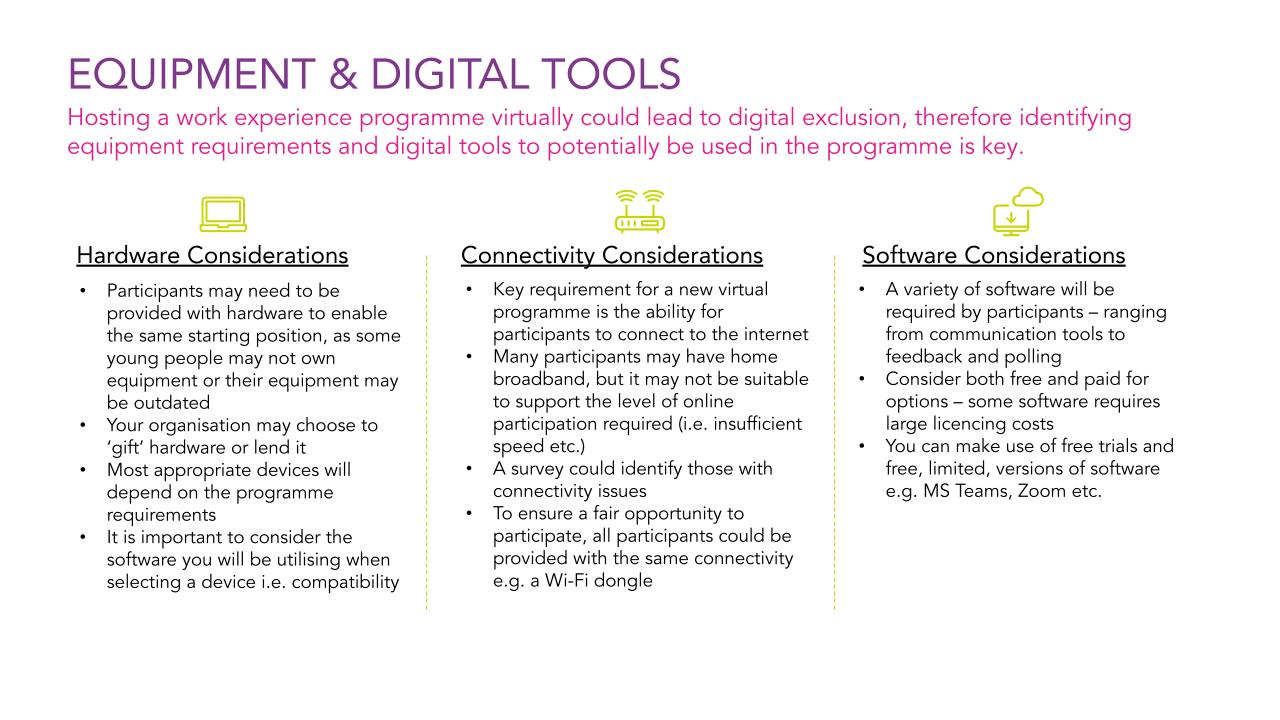
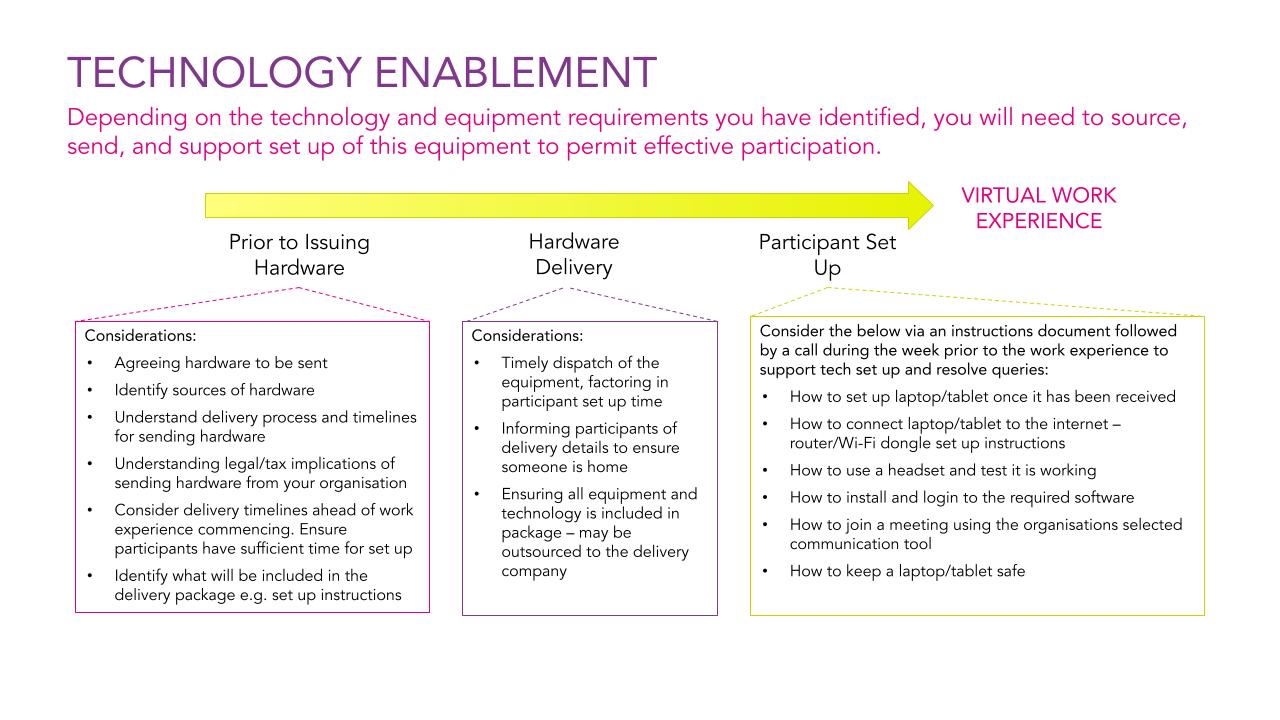
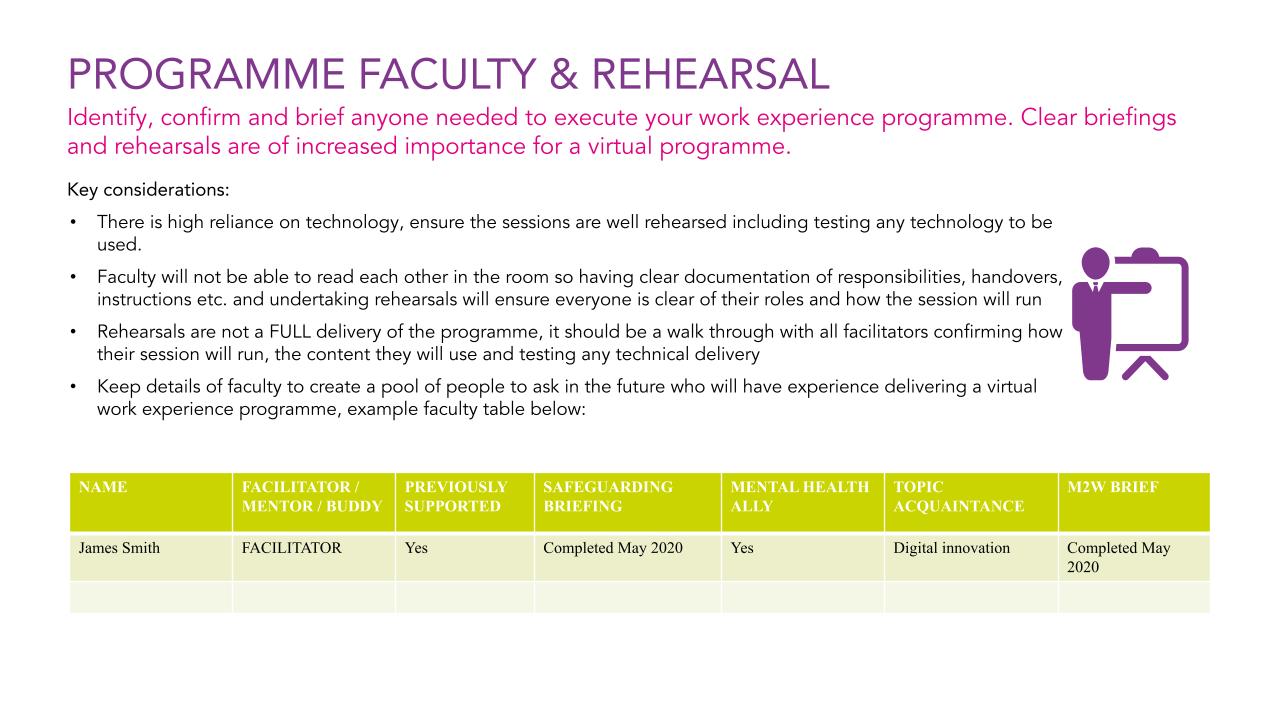
All young people have the right to freedom from abuse and to be in an environment where safety and security are available. Beyond compliance with your own organisation’s policies, your programme plans should be verified by relevant legal counterparts, not forgetting it may be necessary to engage an external third-party provider who specialises in youth development along the way.
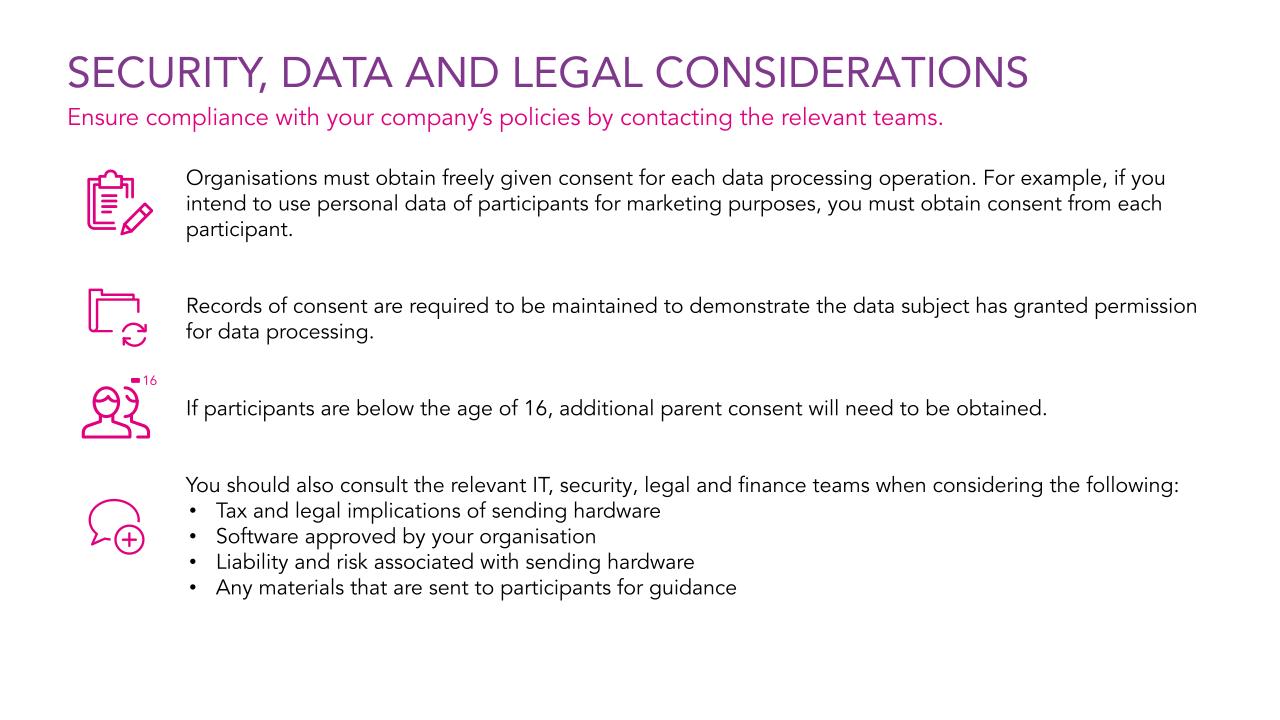
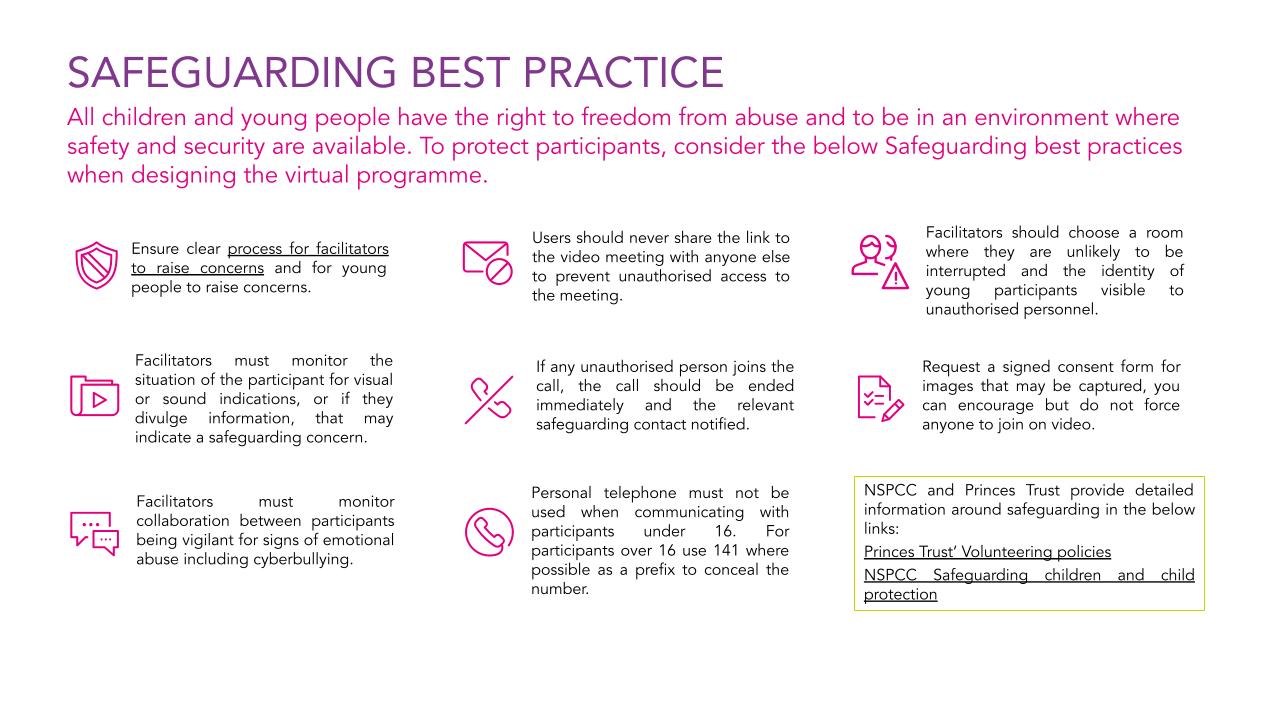
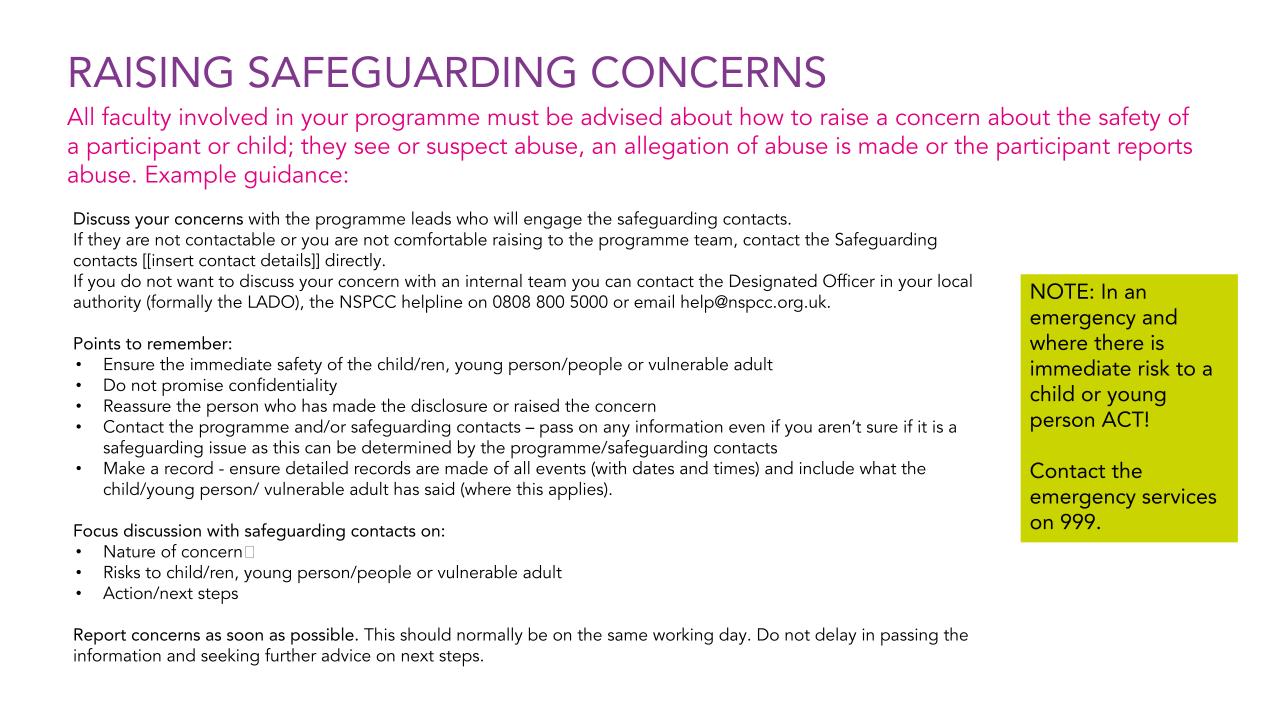
At the crux of Movement to Work is the opportunity for young people to gain meaningful work experience. Practically, this could be delivered ‘live’ in a true-to-life scenario; within a safe, simulated environment or through a combination of the two. Guaranteed interviews are worth considering to conclude any experiential units as a way of ensuring continued support and commitment to our mission.

Our membership organisations often feedback how involved their employees like to be in their Movement to Work programmes, primarily by mentoring or acting as ‘guidance’ for the young people within their course(s). This has not only boosted positive outcomes for our young people but also aided employee wellbeing and reputational benefits for organisations who allow their colleagues the time to support in this way.
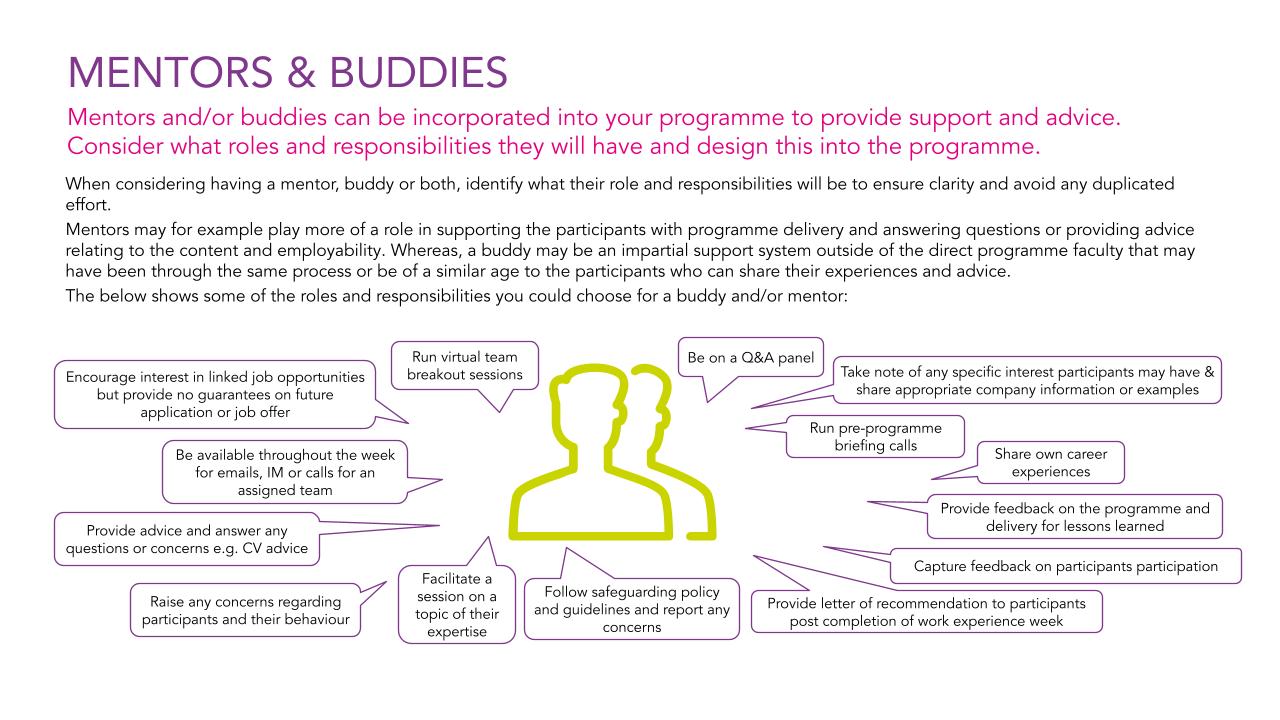
Opportunities for participant-to-participant support throughout your Movement to Work programme are often a welcome addition, whether groups are of similar age and background or mixed, as they allow young people to take ownership of their development while providing opportunities to develop skills such as analysis, review and reflection.
Whilst the short video below was developed by the British Youth Council to explain the benefits of peer support within the healthcare system, we think these reasons are really pertinent to the inclusion of peer support within Movement to Work programmes too.
Linked to support from peers, personal development is a vital ingredient in helping young people reach sustainable positive outcomes. By including opportunities for self-exploration, wellbeing check-ins, mental health support and signposting to specialist expertise, your Movement to Work programme will take a more holistic approach to youth employability.
Including officially recognised learning outcomes really adds to the overall value and transferability of your Movement to Work programme for young people. Partnership with industry-recognised, or educational bodies, are an effective way of keeping training relevant and desirable.
A certificate of achievement gives young people something valuable to take away. It should list the skills they have gained and include the Movement to Work logo and your organisation’s logo. This gives young people evidence of their participation and achievement to show to future employers.
In addition, the next steps following a Movement to Work programme are crucial in helping young people move into a positive outcome – either employment, education or training. Allow time for your young people to meet with their line manager and buddy, reflect on what they have learned, what has gone well, where there is opportunity to improve and to think about their next steps.
Showcasing the achievements of your Movement to Work cohort(s) really boosts the confidence and self-esteem of participants who can reflect on their hard work.
However, celebration events can also act as learning opportunities within their own right if responsibility is handed over to the group – from planning to budget management, sourcing to public speaking – end of course events have multiple touch points of relevance and are a brilliant way to recognise how much your cohorts have achieved during their Movement to Work programme. This is also an opportunity to recognise those who have supported the programme and to inspire and motivate employees from other areas of the business.
SHARE YOUR SUCCESS
Our mission at Movement to Work is to show employers and society at large that employing young people works. We want to work closely with our network to not only ensure best practice, but also to showcase moments of success in order to inspire more people to get involved. Put a spotlight on your organisation and help the Movement in the following ways:
Graduation moments
Capture milestones in each young person’s journey and the graduation of your cohorts. Share with us via email or share on social media tagging @MovementtoWork and including the hashtag #YoungPeopleWork.
Case studies
We want to learn about the remarkable stories and the journeys your young people have been on before, during, and after their placement. We have a template to help you have this conversation with your young people. Share these with us once completed as they serve as important measurement and evaluation tools, as well as fantastic marketing material so we can inspire even more employers to join the Movement!* Read some of our success stories here.
As a Movement to Work partner, we’re always keen to hear from you – your experience of working with us, how it has positively impacted your organisation and most importantly, how you’ve seen it help young people to flourish. If you would like to write a short piece for our website or social channels, please get in touch!
Social media engagement
Please follow us, like, and share content on all our social media channels, and tag us in content that you want us to see! Here you will also see the latest updates from the Movement to Work network.
*Please ensure that you have received permission from young people for any information or images you share with us via email or social media, with approval that these may be used on Movement to Work channels.
Whilst Movement to Work exists to support employers in giving great work experience opportunities to young people, our ideal outcome is to see those same young people get offered guaranteed interviews, jobs or further training! Give consideration to how your organisation’s Movement to Work programme can connect to, and support, your strategic workforce planning and wider talent pipeline. As mentioned earlier, many organisations are using Movement to Work as a ‘feeder’ to their talent acquisition processes whilst also contributing to positive social change and sustainability.
Limited scope within your organisation? Why not consider how your programme could support your supply chain or wider industry by recruiting high-quality talent.
Post programme support is also key. Your delivery partner should have support in place for young people when they have completed their programme. This could be a mentoring programme, drop-in sessions to talk about their next steps, career guidance or help with interview prep.
It is important that appropriate support is in place so that the young people are able to make the most of their Movement to Work experience.
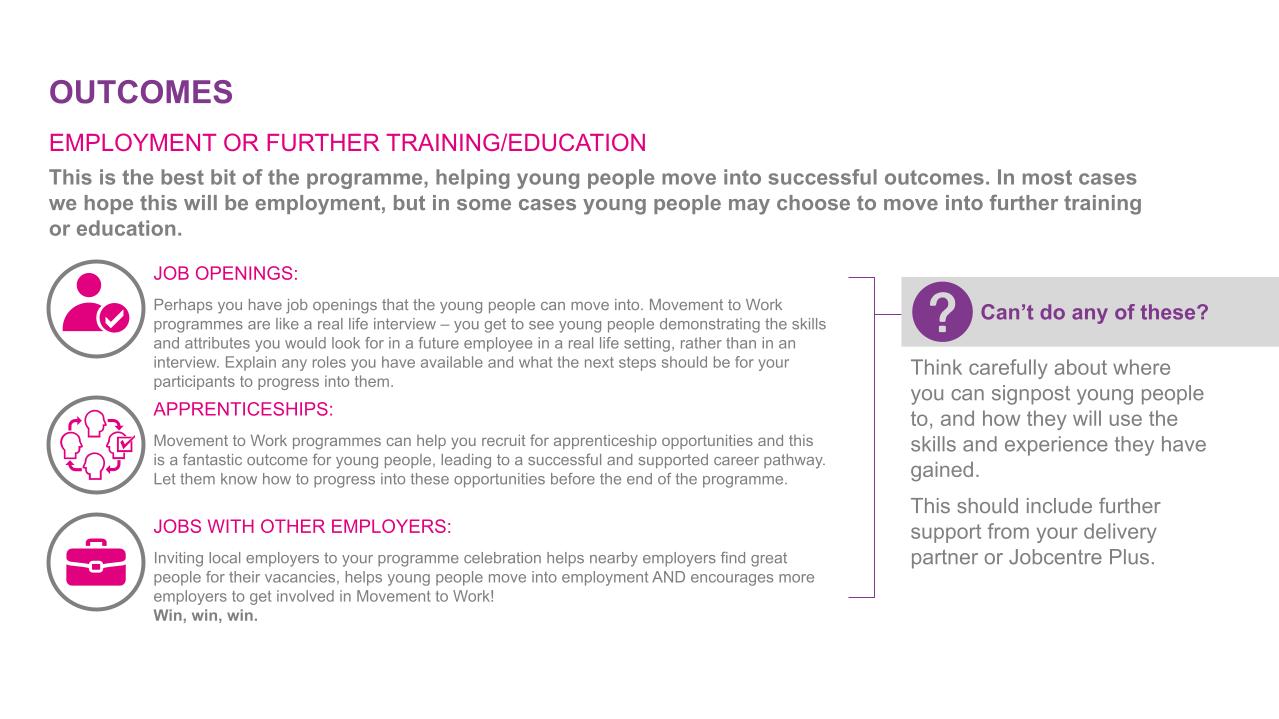
Whether starting out from scratch, or after running a programme for several years, our employer members typically hold ambitious plans for their Movement to Work programmes and wish to expand their reach. We are here to support continuous improvement, find new regional delivery partners and share best practice on how to increase impact – or avoid pitfalls – from those who have gone before.
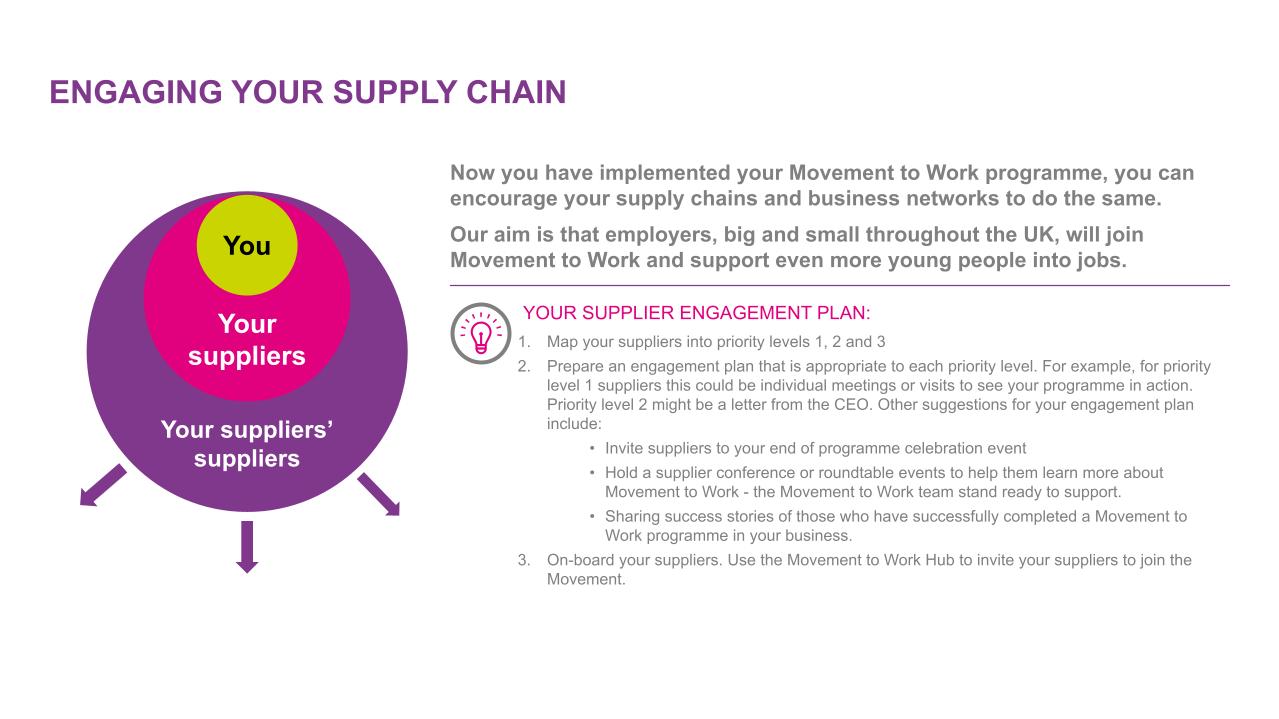
In 2023, Movement to Work introduced changes to our annual Youth Summit model and reflected on the need for evolutionary data in our fast paced “permacrisis” world of change. As a result, instead of one annual snapshot of time, we now have Youth Voice data and insights being cultivated by an ‘always on’ tech driven data dashboard, and we supplement these quantitative insights with qualitative Youth Voice workshops which will run regularly across the UK.
From November 2023, Movement to Work members will have unlimited access to our live Data Dashboard, which is fully interactive and can be used to better inform decision making in relation to young people in the world of work.
Our Youth Data Dashboard and Youth Voice Workshops focus on key areas such as the value of work experience, seeking employment and wellbeing, as well as diving deeper into the motivators of young people, and their challenges associated with gaining work.
For further information please speak to your Movement to Work account lead, or login to interact with our dashboard today.
This guidance has been created to support employers when creating their own Movement to Work programmes. This includes the information, best practice and tools to support MtW partners to kickstart their planning and consider what a programme could look like. It explores possible tools, techniques and ideas as well as identifying key considerations to take into account when creating a programme.
Slide references (images) – the suggestions and guidelines within this page are to act as reference material only and are not exhaustive. Organisations choosing to follow any of the guidelines do so at their own risk. Not all of the all tools referenced in the document has been approved for use within MtW or Accenture. This may also be the case for your organisation, therefore the reader must check their organisation’s internal policies prior to using any of the tools (hardware and software) referred to in this guidance. MtW or Accenture accepts no liability for any loss caused to third parties in following the guidance in this document.
This material makes descriptive reference to trademarks that may be owned by others. The use of such trademarks herein is not an assertion of ownership of such trademarks by MtW or Accenture and is not intended to represent or imply the existence of an association between MtW or Accenture and the lawful owners of such trademarks.
The information provided to Movement to Work herein is confidential and proprietary to Accenture UK Ltd (“Accenture”).
The Large Employers and the Youth Labour Market research report looks at how large employers engage with youth employment programmes.
Accessing the right youth employment government initiative can be daunting. Find out what’s out there and get support to make the right choice for your business.
Each year we host a Youth Summit, bringing together HR leaders and young people from across our network. Take a look at some insights from our last meeting.
A government-funded employability scheme puts an employer in a unique position. Together with Accenture, we created a toolkit for employers to help you unlock these schemes.
Still need help? We’re here for you!
We hope this guidance has been useful but we’re always here to chat further if you’d like to discuss your plans. Please reach out to your dedicated Movement to Work Regional Lead for further consultation, or if you don’t yet have one please email info@movementtowork.com and we will be in touch soon!
